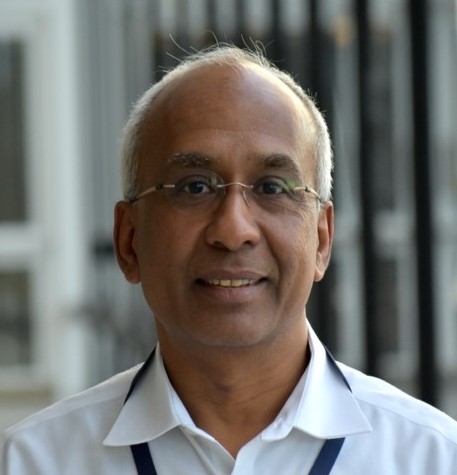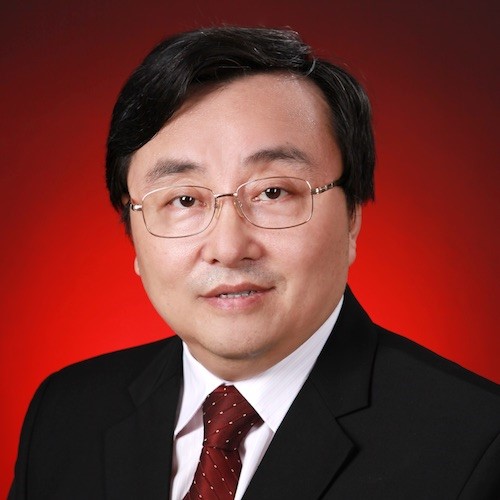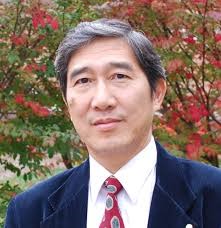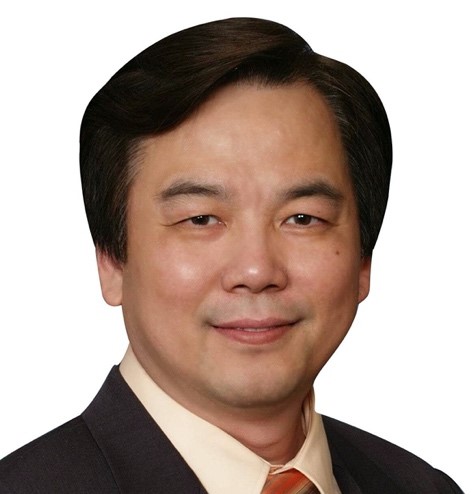IEEE Services 2020 Plenary Events
Serviceology: Advancing Scientific Foundations for Modern Digital Services
| Title: | Serviceology: Advancing Scientific Foundations for Modern Digital Services |
| Date/Time: | Thursday October 22, 8:40-10:00 UTC |
| Summary: | Enterprises, industries, and entire economies are accelerating their shift to the evolving digital world. Real world systems, be it business, IT, and physical infrastructures, are rapidly converging as part of such a digital fabric and consumed as transdisciplinary modern services. The primary objective of this plenary panel is to draw the spotlight on the scientific foundations that are critical to modern services and digital platforms. More specifically, IEEE Computer Society started her services computing initiative about 20 years ago in light of the importance of creating a new computing discipline for the fast-growing service industry as well as computing professionals. In 2007, IBM and several top Chinese universities coined the term services science, management and engineering (SSME) aiming to promote science-based services R&D as a first-class research domain. In the 2009 book titled Knowledge Body of Serviceology for Universities, serviceology is defined as a discipline or specialty that focuses on laws, knowledge, technologies, and management of services; comprising of service science for investigating scientific laws and theories of services, service engineering for advancing service implementation and service solutioning technologies, and service management for pursuing business and operation management excellence of services. Unique characteristics of serviceology are transdisciplinary in nature, comprehensive in scope, and forward-looking in service-oriented consumption and delivery of functional capabilities with quality assurances. Although many computing technologies advocating novel services have enabled the delivery of many innovative as-a-service applications and solutions, much more theoretical and experimental research is needed for advancing the scientific foundations of serviceology. |
| Panel Chair: |  Kumar Bhaskaran, IBM Research, TJ Watson Research Center Kumar Bhaskaran, IBM Research, TJ Watson Research CenterKumar Bhaskaran is a research scientist in IBM Research and is the global lead for the Governance of Science and Technology. His current areas of focus are in Brain-Machine Interfaces and the associated Neuro Data and Technology, Data Security and Privacy, and Climate Responsibility. Prior to that he was the global leader for Financial Services Research. He has 30+ years of experience in leading R&D teams world-wide. As the Head of Research in Singapore and the Chief Research Strategist for IBM in the Growth Markets he was responsible for creating the first public-private partnership on Blockchain innovations. He has a PhD from Rensselaer Polytechnic Institute. He is a general chair of the 2020 IEEE International Conference on Services Computing and the honorary general chair of IEEE Symposium on Future of Financial Services. More details on Kumar can be seen here. |
| Panel Chair: |  Xiaofei Xu, Harbin Institute of Technology Xiaofei Xu, Harbin Institute of TechnologyXiaofei Xu has been a professor of computer science at Harbin Institute of Technology (HIT) since 1993. He is currently the vice president of Harbin Institute of Technology, and the president of HIT, Weihai campus. He received his Ph.D. Degree in HIT in 1988. His research interests include service computing and service engineering, enterprise computing and enterprise interoperability, software engineering, databases and data mining. He is the author/co-author of more than 300 journal/conference papers, and seven books. He has supervised more than 30 Ph.D. in computer science. He is a fellow and board-member of China Computer Federation (CCF), vice director of the Steering Committee of Higher Education on Software Engineering of China, and vice chair of China association of MOOC on computer education. He is also the leader of the expert group of University-Industry Co-education Program of China Ministry of Education. He was the chair of the Technical Committee on Service Computing of CCF. He is involved in the editorial boards of ten journals. He has been chair/co-chair of conferences, program committees in more than twenty international conferences, including IEEE SCC, ICSS, IESA, CEISEE. He received IEEE TCSVC Outstanding Leadership Award in 2019 and is a general chair of 2020 IEEE International Conference on Services Computing. |
| Panelist: |  Carl K. Chang, Iowa State University Carl K. Chang, Iowa State UniversityCarl K. Chang is Professor of Computer Science, Professor of Human Computer Interaction and Director of Software Engineering Laboratory in the Department of Computer Science at Iowa State University where he served as its department chair from 2002-2013. He received a PhD in computer science from Northwestern University. He worked for GTE Automatic Electric and Bell Laboratories before joining the University of Illinois at Chicago in 1984, where he directed the International Center for Software Engineering. He served as Professor and Director for the Institute for Mobile, Pervasive, and Agile Computing Technologies (IMPACT) at Auburn University from 2001–2002, before moving to Iowa State University in July 2002. Chang was the 2004 IEEE Computer Society president. Previously he served as the Editor-in-Chief for IEEE Software (1991–1994) and Editor-in-Chief for IEEE Computer (2007–2010). He spearheaded the Computing Curricula 2001 (CC2001) project jointly sponsored by the IEEE Computer Society, the ACM, and the National Science Foundation. He is a Life Fellow of IEEE, a Fellow of AAAS, and a member and an officer of the European Academy of Sciences. He received the 2000 IEEE Third Millennium Medal, the 2006 Bulgaria Academy of Sciences Marin Drinov Medal, and the 2012 IEEE Computer Society Richard E. Merwin Medal. As a three times winner of IBM Faculty Award, Chang's research interests include software engineering, human computer interaction and digital health. He is the founder of Situation Analytics based on his Situ theoretical framework. |
| Panelist: |  Rong N. Chang, IBM Research, TJ Watson Research Center Rong N. Chang, IBM Research, TJ Watson Research CenterRong N. Chang is with IBM Research, T.J. Watson Research Center. He is a member of IBM Academy of Technology and chair of IBM Research Services PIC (Professional Interest Community). He is leading an in-market R&D effort in creating a composable enterprise microservices fabric for intelligent computing infrastructures. He received his Ph.D. degree in computer science & engineering from the University of Michigan at Ann Arbor in 1990. He has won one IEEE Best Paper Award, received six IBM corporate-level Outstanding Technical Achievement Awards, held 30+ patents, and published 50+ refereed technical papers in the areas of distributed services computing. He is chair of IEEE Technical Committee on Services Computing, associate editor-in-chief of the IEEE Transactions on Services Computing, and a distinguished member of ACM. He is a steering committee member of IEEE World Congress on Services (SERVICES) and an advisory committee member of CCF Technical Committee on Service Computing. He is general chair of 2020 IEEE SERVICES Symposia. |
| Panelist: |  Bhavani Thuraisingham, University of Texas at Dallas Bhavani Thuraisingham, University of Texas at DallasDr. Bhavani Thuraisingham is the Founders Chair Professor of Computer Science and the Executive Director of the Cyber Security Research and Education Institute at the University of Texas at Dallas (UTD). She is also a visiting Senior Research Fellow at Kings College, University of London and an elected Fellow of the ACM, IEEE, the AAAS, the NAI and the BCS. She was a Cyber Security Policy Fellow at the New America Foundation in 2017-8. Her research interests are on integrating cyber security and artificial intelligence/data science for the past 35 years (it used to be computer security and data management/mining/expert systems). She has received several awards including the IEEE CS 1997 Technical Achievement Award, ACM SIGSAC 2010 Outstanding Contributions Award, the IEEE Comsoc Communications and Information Security 2019 Technical Recognition Award, the IEEE CS Services Computing 2017 Research Innovation Award, the ACM CODASPY 2017 Lasting Research Award, the IEEE ISI 2010 Research Leadership Award, the 2017 Dallas Business Journal Women in Technology Award, and the ACM SACMAT 10 Year Test of Time Awards for 2018 and 2019 (for papers published in 2008 and 2009). She co-chaired the Women in Cyber Security Conference (WiCyS) in 2016 and delivered the featured address at the 2018 Women in Data Science (WiDS) at Stanford University as well as keynote addresses at Cyber-W 2017 and 2020 (Women in Cyber Security Research), 2019 Women in Communications Engineering (WICE), and 2018 Women in Services Computing, and serves as the Co-Director of both the Women in Cyber Security and Women in Data Science Centers at UTD. Her 40-year career includes industry (Control Data, Honeywell), federal research laboratory (MITRE), US government (NSF) and US Academia. Her work has resulted in 130+ journal articles, 300+ conference papers, 150+ keynote and featured addresses, six US patents, fifteen books as well as technology transfer of the research to commercial products and operational systems. She received her PhD from the University of Wales, Swansea, UK, and the prestigious earned higher doctorate (D. Eng) from the University of Bristol, UK. |